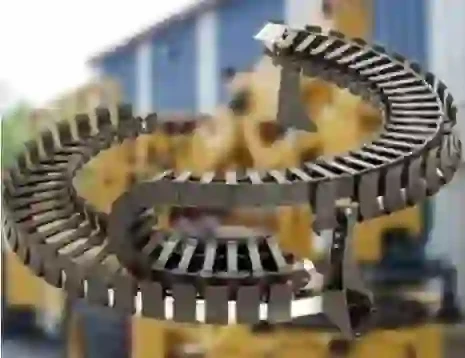corrugated wire conduit
Understanding Corrugated Wire Conduit An Essential Element for Electrical Installations
In the realm of electrical installations, safety and durability are paramount. One key component that significantly contributes to both is the corrugated wire conduit. This innovative solution not only protects electrical wires but also ensures that the installation process is efficient and reliable. In this article, we will explore what corrugated wire conduit is, its advantages, its applications, and important considerations for its use.
What is Corrugated Wire Conduit?
Corrugated wire conduit is a flexible tubing made from durable materials like PVC, polyethylene, or other polymers. Its distinctive corrugated design—characterized by alternating ridges and grooves—provides both flexibility and strength, making it an ideal choice for various electrical applications. This conduit is specifically designed to encase and protect electrical wires from physical damage, moisture, chemicals, and other environmental factors.
Advantages of Using Corrugated Wire Conduit
1. Protection and Durability The primary function of corrugated wire conduit is to safeguard electrical cables from wear and tear. Its tough exterior deflects impacts and shields wires from sharp objects and abrasive materials. This durability extends the life of the enclosed wires, reducing long-term replacement costs.
2. Flexibility Corrugated wire conduit is highly flexible, allowing it to bend and twist without compromising its integrity. This flexibility makes it easier to install in tight spaces or around obstacles, making it a favored choice among electricians and installers.
3. Lightweight Compared to traditional rigid conduits, corrugated wire conduits are significantly lighter, making transportation and installation less cumbersome. Electricians can easily carry and manipulate these conduits, contributing to faster project completion times.
4. Moisture and Chemical Resistance Many types of corrugated wire conduit are designed to resist moisture and chemicals, protecting the wiring inside from corrosion and deterioration. This is particularly important in environments such as industrial settings or outdoor installations, where exposure to harsh conditions is common.
5. Cost-Effective The combination of durability, reduced installation time, and minimal maintenance requirements makes corrugated wire conduit a cost-effective option. While the initial investment may vary depending on the material, the long-term savings associated with fewer repairs and replacements can be significant.
Applications of Corrugated Wire Conduit
corrugated wire conduit

Corrugated wire conduits are widely used in various applications, including
- Residential Wiring In homes, corrugated wire conduits protect electrical systems from physical damage, ensuring safety and reliability. - Commercial Installations Many businesses use these conduits in office buildings and retail spaces to organize and protect wiring systems, maintaining a professional appearance.
- Industrial Settings In factories and warehouses, corrugated wire conduits protect wires from heavy machinery, chemicals, and other potential hazards.
- Outdoor Installations Due to their moisture resistance, these conduits are ideal for outdoor lighting and electrical systems, ensuring long-term performance.
Considerations for Use
When selecting and installing corrugated wire conduit, several factors should be considered
1. Material Choice Different applications may require specific materials that provide additional protection against environmental factors. Always choose a conduit suited to the conditions it will face.
2. Sizing Proper sizing of the conduit is crucial to avoid overcrowding, which can lead to overheating. Ensure there is enough space for the number of wires that will be housed within.
3. Local Codes and Regulations Always adhere to local electrical codes and regulations when installing wire conduits. This ensures compliance with safety standards and reduces the risk of future problems.
In conclusion, corrugated wire conduit is an invaluable element in electrical installations, offering protection, flexibility, and cost-effectiveness. By understanding its features and applications, electricians and homeowners can make informed decisions that enhance safety and efficiency in their projects.








